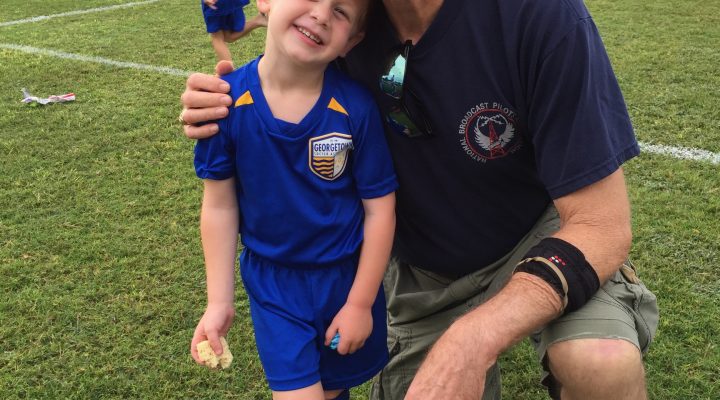A brush with death leads to a new career
Written by Morey Stettner at MarketWatch.com
Some advisers spend decades in other careers before pursuing financial planning. Dentists, military veterans or even pastors may decide to dive into advising to help people manage money and live fuller lives.
Scotty Wallace thrived in two careers before becoming a financial planner. First, he worked as a news and sports reporter at local television stations around the U.S. Then he became a helicopter pilot who flew sick or injured patients to the hospital.
A serious accident led him to his third profession—as an adviser.
In September 2012, Wallace worked for CareFlite, a Texas-based nonprofit that provides air medical transportation services. On a trip to pick up a patient, a malfunction in the helicopter’s electrical system led to an emergency landing in rough terrain in Ranger, Texas.
Then 58, Wallace suffered a traumatic brain injury along with a broken neck, back, pelvis, leg and spinal cord. The helicopter’s other two occupants, a paramedic and flight nurse, also sustained significant injuries but recovered.
During his three-year rehabilitation, Wallace needed to reinvent himself after losing his job with CareFlite. An online career aptitude test identified financial planning as an ideal profession for him.
“I was in the 99th percentile to be a CFP [certified financial planner],” Wallace said. “I thought, ‘Yes, that makes sense!’ So I went through the financial planning program at the University of Texas at Austin.”
Wallace began his new career in 2014. After stints at Charles Schwab SCHW, +1.92% and Ameriprise AMP, +0.52% , he launched his Round Rock, Texas-based firm, Thrifty Scotty Financial, in February 2018.
“The accident gave me increased emotional and cognitive empathy,” he said. “Having gone through disability, I can cry with others facing similar challenges. And I understand the pain people go through and can respond in a cerebral, problem-solving way.”
Wallace calls upon his harrowing experience to prod clients to stay the course. After the crash, he spent 10 days in the hospital’s trauma intensive care unit before undergoing over two weeks of inpatient rehab and spending a month in a wheelchair. The next three years of physical therapy tested his fortitude.
“It taught me the value of sticking with a plan,” he said. “Now part of my job is making sure clients stick with a plan.”
Now 64, Wallace has a heightened appreciation for long-term disability insurance. Sharing his story motivates clients to purchase the disability protection they need.
He cites the example of a new client, a high-income engineer with a stay-at-home wife and five young children, who lacked disability coverage.
“You can’t go another day without this,” Wallace told the client. “If you had a serious injury, you couldn’t work in your current job. Your employer doesn’t offer disability insurance, so you need to buy it on the open market.”
The client readily agreed, and Wallace helped connect him with the appropriate coverage.
Reflecting on the moments before the helicopter’s emergency landing, Wallace draws another valuable life lesson. As he struggled to regain control in the cockpit during his descent, avoiding power lines amid limited visibility due to stormy weather, calm washed over him.
“As a flight instructor, I had taught students not to panic,” he said. “If you panic, all is lost. You need to focus on mindfulness in the moment, to use the analytical part of the brain to assess what to do and the lizard-like instinctive part of the brain to guide you.”
MOREY STETTNER
Morey Stettner is a writer in Portsmouth, N.H. He’s the author of five business books, including ”Skills for New Managers,” published by McGraw Hill.



